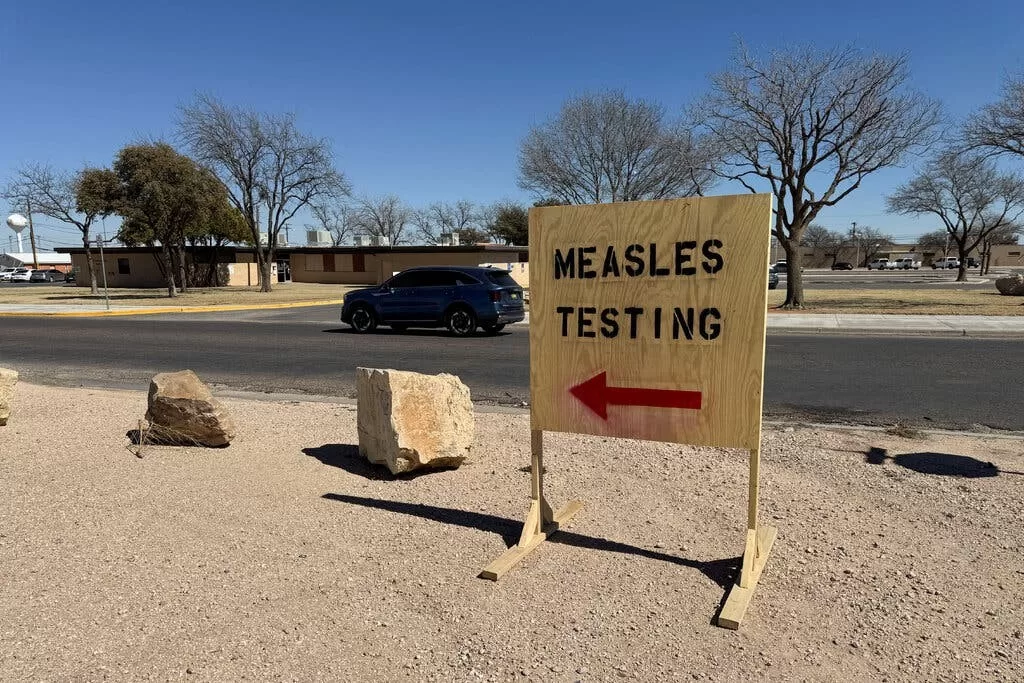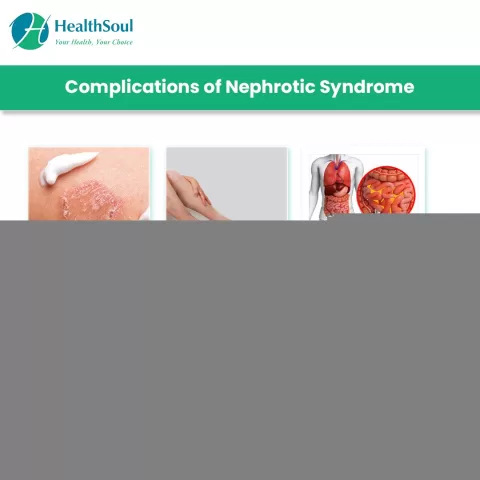The ongoing measles outbreak in Texas has raised alarm as a second school-aged child in West Texas has tragically died from a measles-related illness. This recent development highlights the severity of the situation, with health officials noting a surge in measles cases in Texas, particularly among unvaccinated children. The dire consequences of this outbreak emphasize the importance of the measles vaccination, as the CDC continues to report an increasing number of cases and complications resulting from this preventable disease. In recent weeks, reports indicate that nearly 570 individuals may have been impacted, leading to serious health implications, including multiple hospitalizations and fatalities. As health experts stress the necessity of the measles, mumps, and rubella vaccine (MMR), the Texas community faces urgent challenges to curtail this escalating health crisis and prevent further tragedy.
The recent resurgence of the measles virus in Texas has caused significant concern among public health officials, particularly following the unfortunate deaths linked to this contagious disease. As officials grapple with the implications of unvaccinated populations, discussions around vaccination necessity have intensified. This epidemic, characterized by a surge in cases primarily affecting school-aged and under-vaccinated children, underscores the critical need for immediate health measures. Moreover, the ongoing crisis serves as a reminder of the potential risks posed by measles, which can easily spread and put vulnerable populations at risk. Through comprehensive public awareness campaigns and an emphasis on vaccine importance, officials aim to mitigate the wide-reaching impacts of the outbreak.
The Current Measles Outbreak in Texas: A Health Crisis
The current measles outbreak in Texas has reached alarming levels, impacting almost 570 individuals in recent weeks. Health officials have raised concerns particularly over the rising number of cases among unvaccinated children, which includes two tragic deaths in West Texas associated with measles-related illnesses. This outbreak not only highlights the immediate medical crisis but also emphasizes the importance of community immunity through vaccination.
As health officials work to control the spread, they continually stress the critical need for vaccinations. The Centers for Disease Control and Prevention (CDC) has reported a notable uptick in measles cases in the U.S., documenting more cases within the early months of 2024 than in the entirety of 2023. These statistics put Texas’s outbreak in a national context where public health measures, including widespread vaccination campaigns, are more crucial than ever.
Understanding the Measles Vaccination Importance
Vaccination against measles is vital for the protection of children and the community at large. The measles, mumps, and rubella (MMR) vaccine has been proven to be safe and effective for over six decades, with a 97% efficacy rate following two doses. However, with the current outbreak in Texas, many unvaccinated individuals are at risk, underscoring the urgent need for comprehensive vaccination programs.
Despite the proven safety and effectiveness of the MMR vaccine, there have been significant hesitations fueled by misinformation regarding vaccine safety. Figures like Health Secretary Robert F. Kennedy Jr. have raised concerns around vaccination without offering sufficient evidence, leading to increased skepticism among parents. Public health officials encourage education and awareness campaigns to help combat these challenges by highlighting the importance of the measles vaccination to prevent future outbreaks.
Measles Cases in Texas: A Rising Trend
In Texas, measles cases have surged recently, with the state reporting an alarming increase of 81 cases in just a week in early April. This explosion of cases is troubling, particularly as the outbreak continues to spread across state lines into regions like New Mexico and Oklahoma. Addressing the root cause of this surge, it becomes evident that the lack of vaccinations, specifically among children, plays a pivotal role.
Furthermore, this uptick in measles cases serves as a stark reminder of the vulnerability posed by vaccine hesitancy. Many families are opting out of vaccinations due to personal beliefs or misinformation, which has direct implications for community health. With the CDC now involved in the outbreak response, it is crucial for Texas and surrounding states to actively promote vaccination and reinforce the importance of herd immunity.
West Texas Measles Death: A Tragic Loss
The death of a second school-aged child in West Texas from a measles-related illness is a tragic indicator of the outbreak’s severity. Both children who died were unvaccinated, and their deaths serve as heartbreaking reminders of the consequences of vaccine hesitancy. This incident has prompted renewed discussions about the urgent need for widespread and effective vaccination campaigns to educate parents about the risks linked to measles.
Health officials have expressed deep concern not only for the families affected but also for the potential long-term impacts on public health in Texas. Each measles-related death underscores the critical importance of timely vaccinations, as measles is highly contagious and can have severe complications. Moving forward, local health departments must prioritize educational efforts to dispel myths about vaccinations while providing accessible vaccination services.
The Role of the CDC in Managing the Outbreak
The Centers for Disease Control and Prevention (CDC) plays a crucial role in managing public health outbreaks, including the current measles crisis in Texas. Following the rise in measles cases, the CDC deployed a specialized team to assist local health authorities in outbreak response efforts. This intervention is vital for implementing effective containment strategies and improving vaccination outreach to families in affected areas.
In addition to direct assistance, the CDC continues to monitor the situation closely and provides guidelines for vaccination. Their commitment to fighting the outbreak is crucial during this time when misinformation about vaccines can hinder public health efforts. The partnership of the CDC with local and state health departments aims to dispel myths surrounding the measles vaccine and ensure that accurate, science-based information reaches the community.
How Measles Transmission Works: The Facts
Measles is known for its high contagion potential, with the virus being able to remain in the air for up to two hours after an infected person has left the area. It is estimated that about 90% of individuals who are susceptible—those who are unvaccinated or have not had measles—will contract the virus upon exposure. Understanding how measles spreads is vital for community awareness and public health safety.
With the resurgence of measles cases, health officials stress the need for vigilant practices in containment. This includes rapid vaccination responses, isolation of confirmed cases, and education about the means of transmission. By emphasizing the contagious nature of measles, communities can work together to prevent future outbreaks by ensuring all children receive their vaccinations on schedule.
Impact of Measles on Public Health and Community Safety
The resurgence of measles poses significant threats to public health and the safety of communities. Outbreaks can quickly escalate, as evidenced by the current situation in Texas, where nearly 570 individuals are affected. This spike not only endangers unvaccinated children but also undermines the decades-long progress made in eliminating measles as a public health concern in the U.S.
For the broader implications of measles outbreaks, the discourse surrounding vaccinations is critical. A lapse in immunization can place entire communities at risk, particularly vulnerable populations such as infants and those with weakened immune systems. Public health officials are calling for cooperative community efforts to reinforce the importance of immunization to protect public health.
Vaccination Schedules: Protecting Against Measles
The CDC recommends that children receive their first measles vaccination (MMR) between 12 to 15 months of age, followed by a second dose at ages 4 to 6 years. Adhering to this vaccination schedule is essential to building immunity in children and preventing infectious outbreaks. Complete vaccination before school age is vital for community health.
These specific advice from the CDC is particularly pertinent given the current outbreak dynamics in Texas. Parents must prioritize their children’s vaccination, taking into account that delays or refusals can have severe repercussions for public health. By fostering a proactive approach to vaccinations, communities can work to curb the spread of infections and protect those who are unable to receive vaccines for medical reasons.
Global Context: Measles Cases and International Outbreaks
The measles outbreak in Texas is part of a wider global surge in cases, with numerous reports indicating that the virus is making a comeback in various parts of the world. The World Health Organization has noted cases linked to the Texas outbreak in Mexico, suggesting that the problem transcends borders and requires a coordinated international response. This context is crucial for understanding the dynamics of infectious diseases in today’s interconnected world.
As countries deal with their own outbreaks, the importance of vaccination becomes even clearer. With measles being one of the most infectious diseases, high global vaccination coverage is fundamental. The CDC and global health organizations advocate for comprehensive vaccination programs to mitigate risks and prevent the unnecessary loss of life due to vaccine-preventable diseases like measles.
Frequently Asked Questions
What are the current measles cases in Texas related to the outbreak?
As of now, nearly 570 individuals are affected by the measles outbreak in Texas, with significant transmission also occurring in surrounding states like New Mexico, Oklahoma, and Kansas. The number of measles cases in Texas notably increased by 81 within just a week, highlighting the growing concern over this public health crisis.
Why is measles vaccination important during the Texas outbreak?
Measles vaccination is crucial during the Texas outbreak as it is the most effective way to prevent the disease. The measles, mumps, and rubella (MMR) vaccine has been proven safe and effective, achieving a 97% effectiveness rate against measles after two doses. Vaccination is particularly important in preventing severe complications, including hospitalization and death from measles-related illnesses.
What information do the CDC measles reports provide about the Texas outbreak?
The CDC measles reports provide critical surveillance data on measles cases and outbreaks across the U.S. However, it’s important to note that the most recent death in West Texas has not yet been included in these CDC reports. The CDC is actively involved in monitoring and responding to the measles outbreak in Texas, as nationwide cases have doubled compared to previous years.
What was the impact of the West Texas measles death on public health?
The death of a school-aged child in West Texas from a measles-related illness has raised significant alarm among health officials, underscoring the dangers of the ongoing outbreak. This tragic incident highlights the importance of vaccinations, as the majority of cases have been seen in unvaccinated individuals, and it may influence public health policies and vaccination campaigns in the region.
How can families protect their children from measles during the outbreak in Texas?
Families can protect their children from measles during the Texas outbreak by ensuring they receive the recommended measles, mumps, and rubella (MMR) vaccine. The CDC advises that children get their first dose between 12 to 15 months and a second dose at ages 4 to 6 years. Additionally, parents should stay informed about the outbreak and follow local public health guidelines.
What are the symptoms of measles that families should watch for amid the Texas outbreak?
Families should be vigilant for symptoms of measles, which include high fever, cough, runny nose, sore throat, and a characteristic rash that typically appears 3 to 5 days after the first symptoms. Given the current outbreak in Texas, prompt medical attention should be sought if a child exhibits these symptoms, especially if they are unvaccinated.
What should parents know about the measles vaccination schedule during this outbreak in Texas?
Parents should be aware that the CDC recommends the first dose of the measles vaccine be administered between 12 to 15 months and a second dose between 4 to 6 years of age. During the Texas outbreak, ensuring that children are vaccinated on schedule is essential to prevent illness and protect the community from further transmission.
| Key Point | Details |
|---|---|
| Measles Deaths | Two school-aged children in West Texas have died from measles-related illnesses. |
| Vaccination Status | Both deceased children were unvaccinated. |
| Increase in Cases | The outbreak has impacted nearly 570 individuals, with a significant rise in cases reported. |
| CDC Involvement | A CDC team is on the ground to assist with the outbreak response. |
| Nationwide Increase | Measles cases in the U.S. have more than doubled compared to all of 2024. |
| MMR Vaccine Effectiveness | The MMR vaccine is 97% effective after two doses. |
Summary
The measles outbreak in Texas is a growing concern as two school-aged children have tragically died from related illnesses. Health officials urge vaccinations, particularly as many affected individuals are unvaccinated children. With cases climbing rapidly and the CDC’s involvement in response efforts, the need for public awareness and vaccination is more critical than ever to prevent further casualties and protect vulnerable populations.
The content provided on this blog (e.g., symptom descriptions, health tips, or general advice) is for informational purposes only and is not a substitute for professional medical advice, diagnosis, or treatment. Always seek the guidance of your physician or other qualified healthcare provider with any questions you may have regarding a medical condition. Never disregard professional medical advice or delay seeking it because of something you have read on this website. If you believe you may have a medical emergency, call your doctor or emergency services immediately. Reliance on any information provided by this blog is solely at your own risk.








